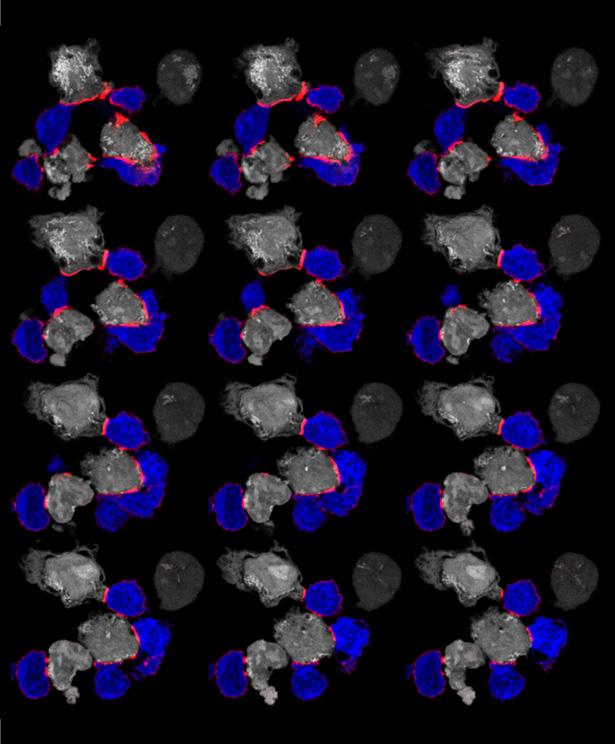
2 minute read
DBM Success Story
The importance of magnesium for the immune system in fighting infection and cancer.
Background:
Advertisement
Despite being the second most-abundant mineral in the human body, the biological significance of magnesium, and in particular of extracellular magnesium, remains poorly understood. Notably, hypomagnesemia—reflective of magnesium deficiency—is the most underdiagnosed electrolyte abnormality.
Research Question:
Recent research has shown that minerals play a crucial role in regulating immune cell functions. For instance, genetic defects in iron or zinc metabolism cause immunodeficiencies. Moreover, high local abundance of sodium chloride results in autoimmune-prone differentiation of T cells, while high levels of intratumoral potassium inhibits their function. In our study, we aimed to investigate whether extracellular magnesium may impact immune cell functionality.
Study Method:
Applying a spectrum of in vitro and in vivo tools, we discovered that effector and memory CD8 T cells require a magnesium-rich environment for activation and the subsequent elimination of infected or malignant cells. More specifically, magnesium is important for the function of LFA-1. This cell surface molecule acts as a docking site and plays a key role in the activation of T cells. During activation, LFA-1 converts from a bent/inactive to an extended/active conformation. By binding to LFA-1, extracellular magnesium stabilizes the active conformation of LFA1, which enables a stable interaction between T cells and target cells, thereby supporting T cell effector function.
Importance of the Study / Relevance for Cancer Patients:
Events
New Colleagues
The observation that magnesium is essential for efficient T cell functioning may be relevant in the context of modern cancer immunotherapies. In experimental models, we have shown that elevating the local concentration of magnesium in tumors enhances cancer-directed T cell immunity. In retrospective analyses, low serum magnesium levels associated with faster disease progression and shorter overall survival in lymphoma patients adoptively transferred with CAR T cells, as well as lung cancer patients treated with immune checkpoint inhibitors.
Outlook:
Lung cancer patients with advanced disease are treated with a platinum-based chemotherapy in combination with immune checkpoint inhibition. Hypomagnesemia is a common side effect of platinum-based chemotherapy. Based on our findings, we hypothesize that the efficacy of immunotherapy could be undermined by chemotherapy-induced hypomagnesemia and that the effector function of cancer-directed T cells can be improved by magnesium supplementation. To test this idea, a multicenter, prospective, and placebo-controlled trial will be performed, combining magnesium substitution with standard of care chemoimmunotherapy in lung cancer patients (in collaboration with the Swiss Group for Clinical Cancer Research [SAKK]).
Contributors:
Our project benefited from a strong collaborative network and highlevel scientific expertise across research groups based in departments at both the University Hospital of Basel and the University of Basel. Contributions made by the Zippelius lab and the King lab were particularly instrumental to the success of the study. The outstanding support provided by the various core facilities also deserves specific mention. Furthermore, collaborators both within Switzerland (Geneva, Lausanne) and abroad (Austin) worked tirelessly alongside us. As the long list of authors attests, this project was a true team effort.
A short Overview of the Immunobiology Lab:
The research group led by Christoph Hess focuses on translational aspects of lymphocyte function and its metabolic basis. The lab’s objective is to understand patients suffering from disorders of immunometabolic regulation.

Contact: https://biomedizin.unibas.ch/en/research/researchgroups/hess-lab/
Immunofluorescent image depicting T cells (blue) attacking tumor cells (white) by forming an immune synapse with LFA-1 (open headpiece conformation – labeled in red). Our work identified extracellular magnesium as a critical immune modulator of CD8+ T cells.

New Colleagues








